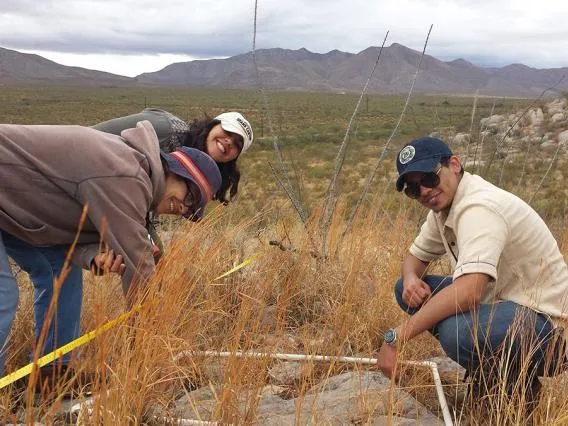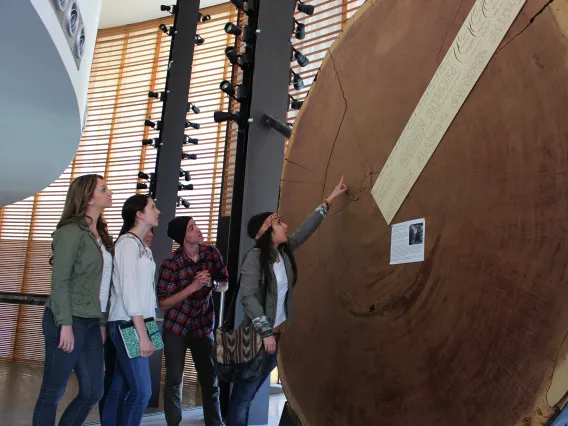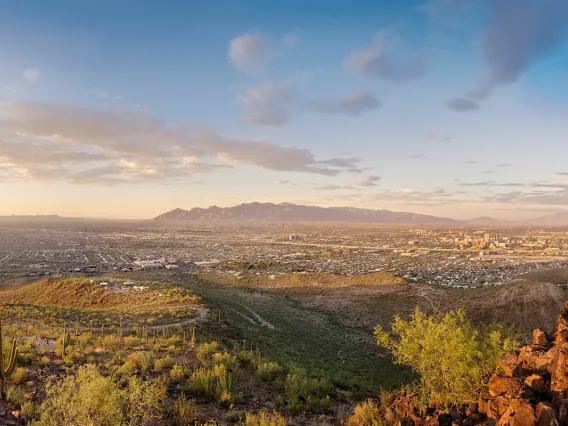Earth Sciences
Through research, observation and outreach, students and faculty in earth sciences programs produce new knowledge about earth and environmental processes and the influences human life has on the environment. This valuable work provides the scientific bases for environmental and climate policy, educates earth and environmental scientists facing the challenges of the future, and disseminates knowledge and solutions of value in scientific, social, economic, political and industrial pursuits.
The Department of Hydrology and Atmospheric Sciences is developing new and bold strategies to characterize, monitor, and model the hydrosphere. It aims to be a world leader in integrated and quantitative hydrologic and atmospheric sciences, and to develop the knowledge needed to solve Earth's water, hydrogeologic, weather, and climate related problems.
The Department of Geosciences, a top-ranked geology program in the nation, seeks a greater understanding of the formation and evolution of land masses and landscapes and the roles of climate and climate change. The knowledge that is generated can be used to address issues relating to society's interactions with the earth.
The Laboratory of Tree-Ring Research is recognized world-wide as a preeminent center for the advancement of tree-ring techniques and the broad application of dendrochronology in the environmental and social sciences.
The School of Earth and Environmental Sciences is a federation of Geosciences, Hydrology and Atmospheric Sciences, Soil, Water and Environmental Science, the Laboratory of Tree-Ring Research, and the Accelerator Mass Spectrometry Laboratory. This interdisciplinary approach makes it possible for students and researchers to move beyond traditional boundaries to address issues of importance relating to the preservation and improvement of the environment.





